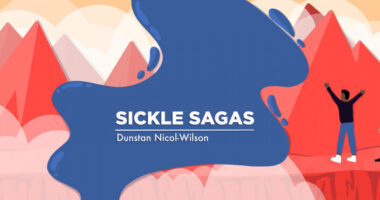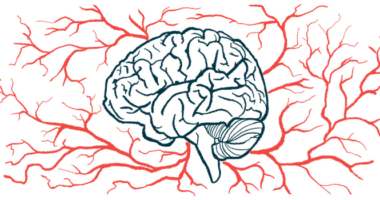GBT Publishes Data from Phase 1/2 Trial of Voxelotor in SCD Patients

Global Blood Therapeutics (GBT) published the results from its Phase 1/2 clinical trial that tested the potential therapy voxelotor in patients with sickle cells disease (SCD). Supported by the published results, the company expects to file a new drug application under accelerated approval to the U.S. Food and Drug Administration (FDA) later this year.
The study “A phase 1/2 ascending dose study and open-label extension study of voxelotor in patients with sickle cell disease” was published in Blood.
SCD is a genetic condition that results from mutations in the gene holding the information to produce the beta-chain of hemoglobin (the molecule in our blood that carries oxygen through the body). Such mutations lead to the formation of abnormal hemoglobin, called sickle hemoglobin, that binds together, forming rigid aggregates in blood vessels.
Voxelotor (previously called GBT440), is a potential oral disease-modifying therapy for patients with SCD. It works by increasing the affinity of hemoglobin to oxygen, thus reducing the amount of sickled and aggregated hemoglobin.
The GBT440-001 Phase 1/2 trial (NCT02285088) assessed voxelotor’s safety, tolerability, pharmacokinetics (how the drug behaves inside the body), and pharmacodynamics (how the drug affects the body).
Thirty-eight participants with SCD received either 500, 700, or 1,000 mg per day, or placebo, for 28 days; 16 patients received either 700 or 900 mg of voxelotor per day, or placebo, for 90 days. Four patients from this group were then enrolled in an extension study (NCT03041909) and treated once daily with 900 mg for six months.
All patients who received treatment for more than 28 days had increased hemoglobin levels and reduced hemolysis (red blood cell rupture) and hemoglobin aggregates in their red blood cells. These effects were increased in patients who received voxelotor for more than 90 days.
The therapy was well-tolerated with no patients reporting severe adverse side effects.
“The findings from the Phase 1/2 study and the open-label extension played an important role in our development of voxelotor. We believe voxelotor has the potential to become a standard-of-care therapy in SCD, as evidenced by its ability to reduce anemia, hemolysis, and sickling,” Ted W. Love MD, president and CEO of GBT, said in a press release.
“I’m pleased that we have reached an agreement with the FDA on [the] accelerated approval pathway for voxelotor … I look forward to our upcoming pre-[new drug application] meeting with the FDA for voxelotor, which will primarily focus on the format of our planned [new drug application] filing in the second half of this year.”
GBT also is testing voxelotor in the ongoing Phase 3 HOPE trial (NCT03036813) in SCD patients age 12 and older with SCD and the Phase 2a HOPE-KIDS 1 trial (NCT02850406) in SCD patients aged 4 to 17. The Hope trial has shown preliminary positive results.
Voxelotor has received the FDA’s breakthrough therapy, fast track, orphan drug, and rare pediatric disease designations for the treatment of SCD.
The therapy also was included in the Priority Medicines (PRIME) program of the European Medicines Agency (EMA), and the European Commission (EC) granted it orphan drug designation for the treatment of SCD.






